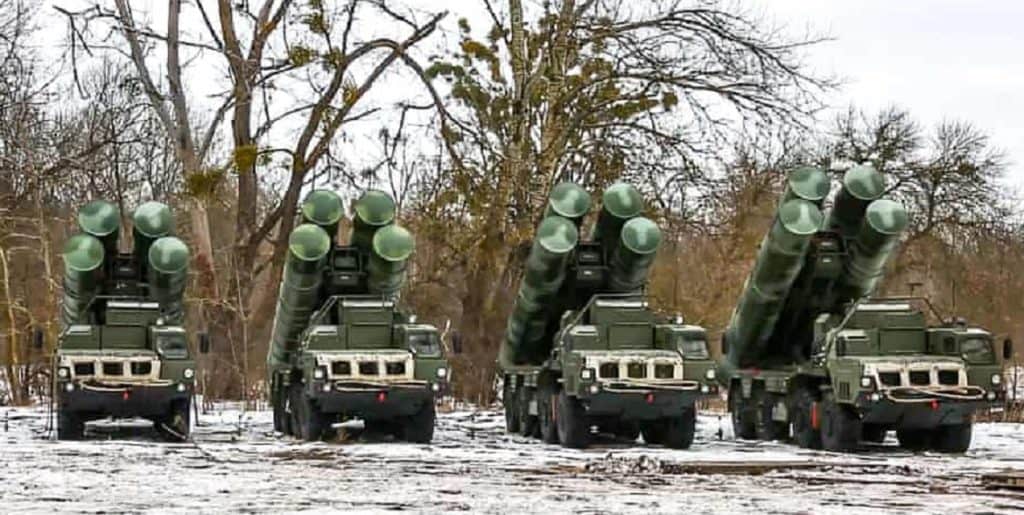By Prof. Engr. Zamir Ahmed Awan
It seems diplomacy failed and the Ukraine crisis is heading toward human disaster. President Putting blames the US for creating a situation where human disaster is unavoidable, while the US is threatening Russia on the Ukraine issue.
Europe is divided and confused. In fact, the cost of the Ukraine crisis will be borne by Europe, especially the neighboring countries. The US is far away from Ukraine and may be kept at a safe distance from any big disaster. But, the neighboring countries may be inflamed if something wrong happens in Ukraine.
Ukraine is a country in Eastern Europe. It is the second-largest country by area in Europe after Russia, which borders to the east and northeast. Ukraine also shares borders with Belarus to the north; Poland, Slovakia, and Hungary to the west; Romania and Moldova to the south; and has a coastline along the Sea of Azov and the Black Sea. It spans an area of 603,628 square kilometers, with a population of 44 million, and is the eighth-most populous country in Europe. Its capital and largest city is Kyiv. Got independence after the disintegration of the former USSR in 1991.
The root cause of the issue lies with Ukraine’s trend toward Europe and flared up due to its possible joining NATO. Russia thinks, by joining NATO, Ukraine will deploy American troops and weaponry systems, which imposes a direct threat to Russian security. However, Russian ethnic people living in Crimea are also a cause of differences. In fact, it is a direct confrontation between Russia and the US, but on Ukrainian soil.
It will have a disastrous impact on Ukraine and in the whole of Europe as well as globally too. Europe was living in peace for several decades and kept away from any direct conflict on its soil. Although Europe through NATO was part of all major conflicts, either during the cold war era or the war on Terror, or any other form of American interests in the world, all wars and conflicts happened outside Europe. The major reason for developments and a stable economy was its distancing from wars and conflicts on its soil.
If war escalates, the economy, security, and integrity of the whole of Europe will collapse. That is why few European countries are reluctant to be a partner with either side on the war in Ukraine, like Germany, Croatia, etc. have openly expressed their viewpoint. On another hand, few countries have openly declared to be on the American side like the UK, New Zealand, Australia, etc.
Although Science and Technology have many useful developments, yet, their application in weapons and warfare is unfortunately dangerously disastrous. Russia and The US are equipped with lethal weapons and advanced defense technologies. It can be an adverse human disaster if war breaks out. Its impact may be an irrecoverable loss to humanity.
Although Russian and the US leadership is in touch and engaged in dialogue, yet, no diplomatic breakthrough is visible. Some other global leaders also played an important role to avert human disaster, yet, the not-good news is heard. Unfortunate!
If nothing is done to avert it, the Ukraine war may turn into a third world war (WWIII). Imagine the consequences, with the latest developments of technologies, advanced weapons, and ammunition, the magnitude of human disaster may become unprecedented.
However, we must not lose hope and keep on struggling to avert any misadventure. It appeals to all peace-loving nations and individuals to struggle to calm down both sides and find a reasonable, sustainable, peaceful solution under the UN charter. Scholars, intellectuals, media persons, etc., can play an important role. We must respect humankind and protect human lives, irrespective of their ethnicity, race, religion, or social status. Humankind is the most precious thing in this universe and everything else is to serve human beings.
Author: Prof. Engr. Zamir Ahmed Awan – Sinologist (ex-Diplomat), Editor, Analyst, Non-Resident Fellow of CCG (Center for China and Globalization), National University of Sciences and Technology (NUST), Islamabad, Pakistan.
(The views and opinions expressed in this article are only of the authors and do not necessarily reflect the views, opinion or position of World Geostrategic Insights).







